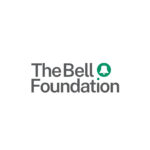Tender Process Opens to Develop New SEN Guidance for Practitioners Working with Pupils who use EAL.
The Bell Foundation is inviting proposals to develop new practical processes, guidance and resources for practitioners working with pupils who use EAL.
The Bell Foundation is excited to launch a tender process for the development of new SEN guidance, processes and resources for practitioners who work directly with pupils using English as an Additional Language (EAL).
Speaking EAL is not a special educational need (SEN), but learners using EAL may themselves have additional educational needs, just like learners who use English as their first language. These new resources will enable practitioners to effectively support pupils who use EAL – particularly, but not exclusively, those pupils who are new to English and at the early stages of language acquisition – who are not making expected progress in their language and academic development and may have a special educational need and disability (SEND) impacting their learning and development.
Identifying SEN
Around 1.4 million pupils in English schools have an identified special educational need (SEN). Research suggests that there are varying interpretations and practices across professionals, schools and local authorities in both SEN identification and provision.
Specific learning needs can be difficult for school staff to identify if the learner and their parents are new to English. Staff who are responsible for admissions, and in particular, the initial placement of newly arrived pupils who use EAL, do not always have access to up-to-date and appropriate guidance or tools to support them in ascertaining whether these pupils have a potential special educational need and disability in addition to their EAL status.
Feedback data gathered by The Bell Foundation suggests that schools use a range of different tools. Some of these have been designed for first language English pupils who are fluent in English and are therefore not fit for purpose to be used with pupils who are new to English or at the early stages of language acquisition.
Failing to identify a SEN as early as possible may result in pupils not being offered the targeted support and arrangements they need to progress in their learning.
Invitation to submit proposals
Through the launch of the tender process, the Foundation is inviting proposals from individuals and small groups to develop new practical guidance and resources.
Proposals should outline the proposed content, features, style and format of the guidance following the specifications outlined in the Call for Proposals.
Applicants should ideally have expertise in both the fields of EAL and SEND with substantive experience in inclusion in mainstream education settings in England (for example, in schools and/or local authority teams).
All proposals must be submitted by 29 July 2022.
For more information, please visit the EAL Programme Partnership page.
